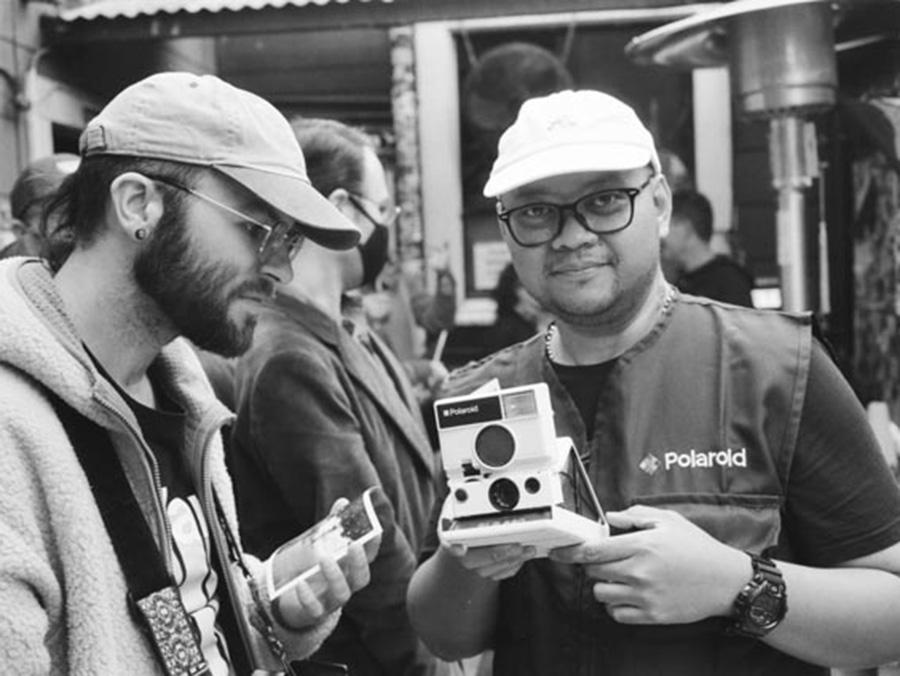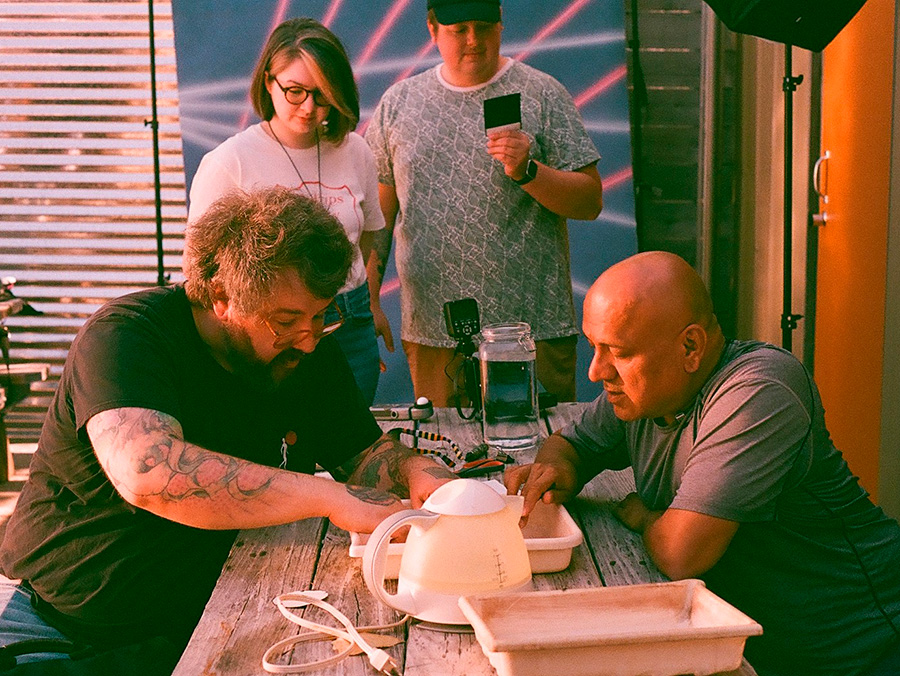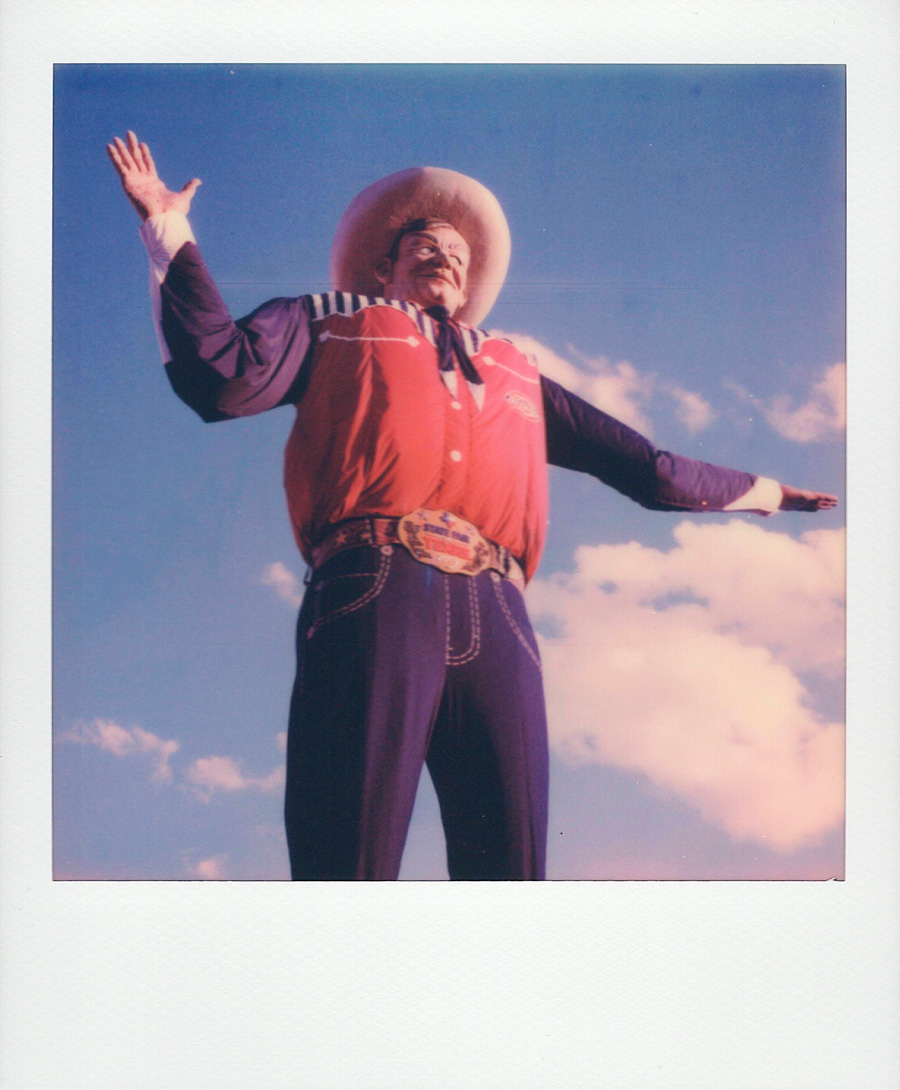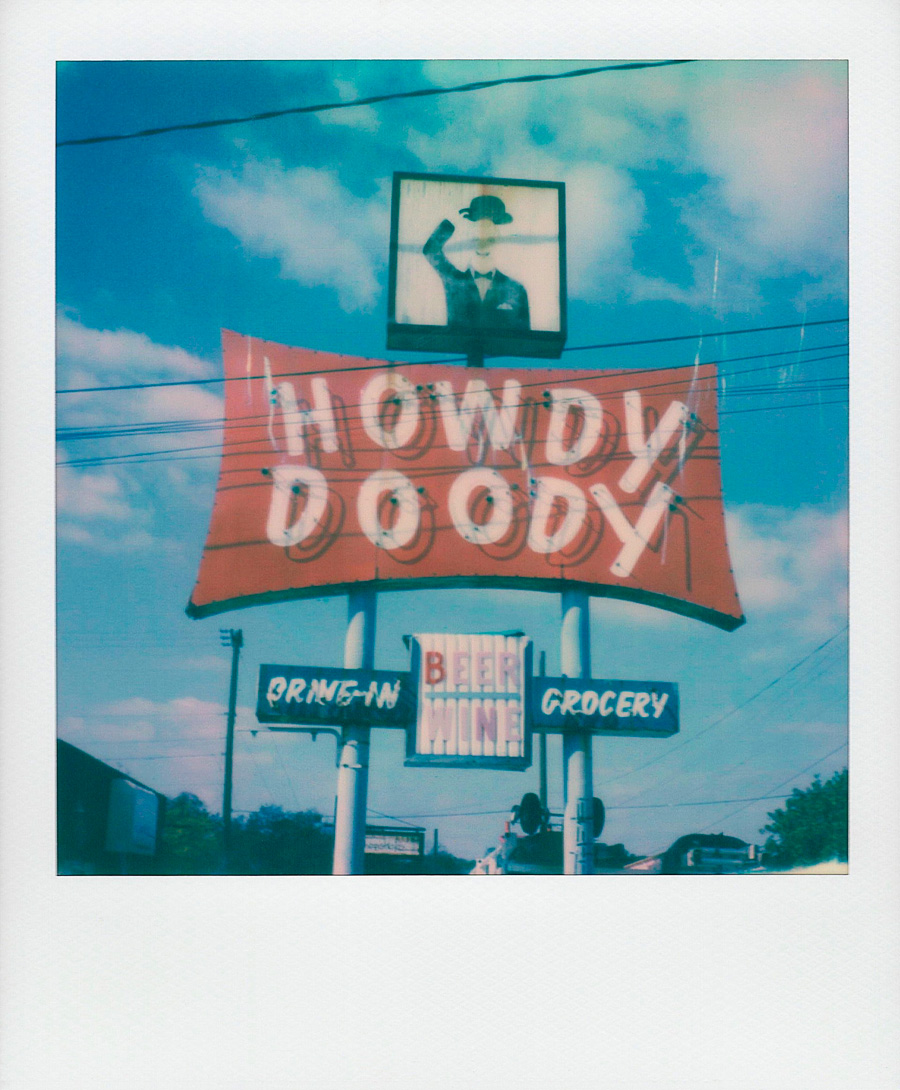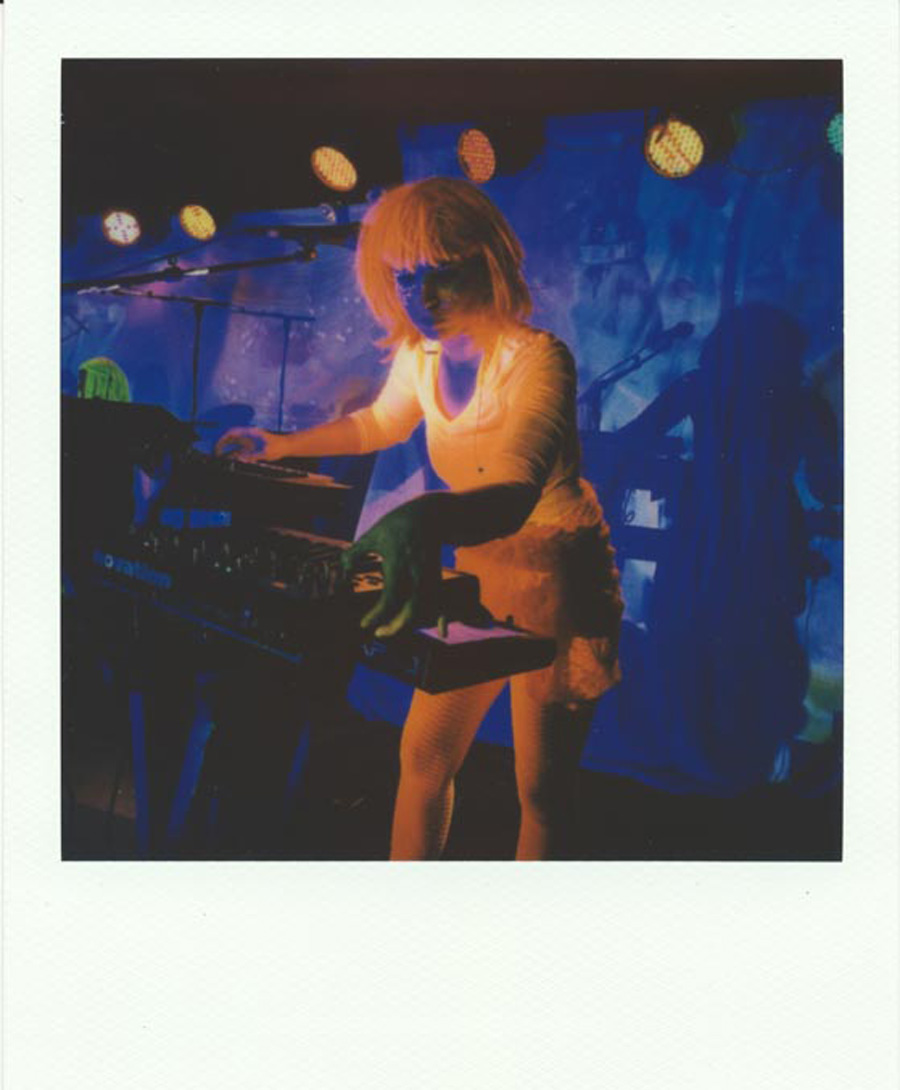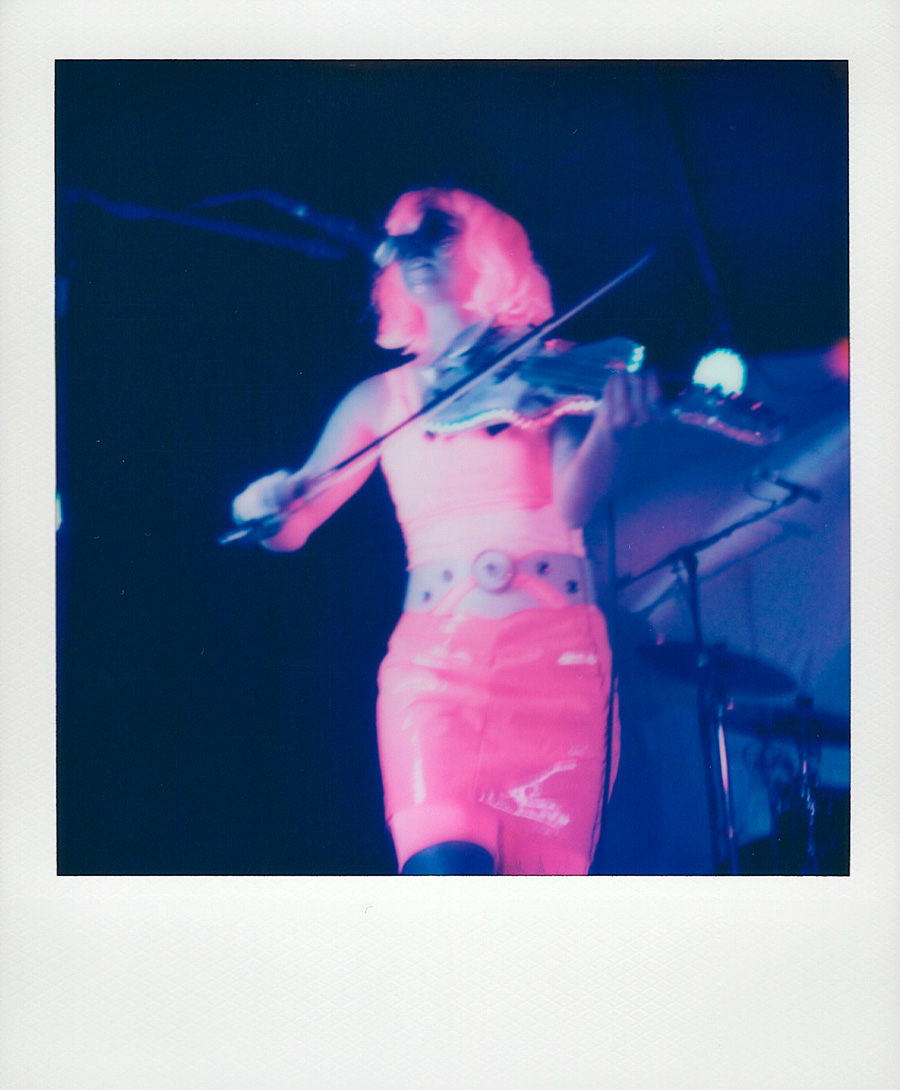"The photo albums in my family were mostly filled with Polaroids," says Muñoz, who
earned a history degree at UNT. He is now the administrative coordinator at the UNT CoLab, the art gallery, boutique and event venue just off Denton's downtown square that's
run through the College of Merchandising, Hospitality and Tourism.
Muñoz also is one of four UNT alumni who sit on the board of the nonprofit Instant Film Society (IFS).
Co-founded in 2012 by UNT alumnus Daniel Rodrigue ('08, '10 M.J.), a photojournalism professor at the Dallas College Brookhaven Campus,
the organization was established with the goal of increasing awareness, accessibility
and understanding of instant film analog photography.
Its regularly scheduled meetups, photo walks or "PolaWalks," workshops and larger
events are attended by amateur and professional photographers and others who are curious
about the photography style and its equipment that was wildly popular decades ago.
In 2016, the organization launched PolaCon, the world's first three-day convention dedicated to all things instant photography,
which was attended by 80 people. In 2022, the event drew 300 attendees or "Polaroiders"
from around the nation and beyond.
Last fall, the eighth-annual PolaCon kicked off the 12th Annual IFS Rain-or-Shine
PolaWalk at the State Fair of Texas. Since 2012, attendees have been snapping instant-film
photos during the fair's opening day festivities in Dallas.
Additional events in and around the Denton Square followed that weekend as part of
PolaCon, including photography workshops, demonstrations, roundtable discussions and
photo scavenger hunts as well as a concert featuring Denton-born rockers Pearl Earl
and the Dallas-based band The Polyphonic Spree at Rubber Gloves Rehearsal Studio.
"We get together for multiple days, and we share knowledge and hang out and build
relationships and strengthen the community" of instant-film enthusiasts, says Andy Odom ('05), an Instant Film Society board member who earned an English degree at UNT and went
on to a career in digital marketing.
